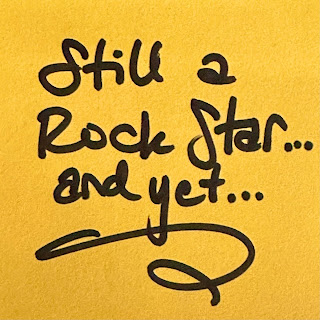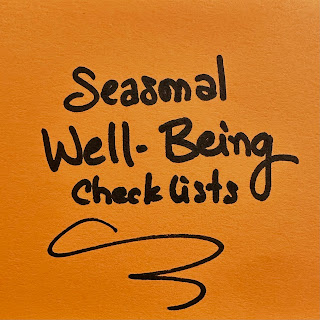Which safety nets do I have control over? Which are vulnerable and might not be reliable? How strong are my safety nets, and where are the gaps?
There are safety nets for daily needs and long-term needs. They’re useful for health care, housing, finances, friendship, physical health, and mental well-being.
Safety nets aren’t just for taking care of my needs; they’re also for taking care of the people and things relying on me. With colleagues, I share what I know and how I navigate issues. The more they know, the better they are for having backup plans if I’m not available temporarily or permanently. Mentoring and sharing help reduce stress for things I do with them and for them, and it helps all of us relax.
When I was diagnosed with MS at almost 38 years old, I feared MS progression would make me unable to work, compromise my health insurance, and lead to immense difficulty surviving. The statistics said I would likely need mobility aids within ten years. Suggestions were to have a single-level home by the age of 55.
The nature of my MS lesions, the frequency of my MS exacerbations, and fear of the unknown led me to believe it was very likely I’d have difficulty walking as my MS progressed.
That was 17 years ago. I’m nearing 55 years old, I work full time in a job that is the highest level of my career, and I live in a home with stairs that isn’t easily conducive to needing a mobility aid. MS symptoms take effort to manage, but I still have full mobility.
I’ve decided in life to plan for the range of possibilities, but I don’t want to skip phases out of fear. That said, I do have vague backup plans. If tomorrow I woke up unable to walk independently, I could have a chair lift installed on the stairs pretty quickly. I have people who would be willing to help.
When I was younger, I had a car with a manual transmission, and I could navigate the stick shift just fine. Then I hurt my Achilles, and recovery meant I had to keep off that foot. I navigated work, home, and shopping on foot using crutches and a knee scooter. I couldn’t drive my car anymore. Fortunately, I had access to a car with an automatic transmission, and I could still get to work. While it was a huge inconvenience, it was doable. It was temporary, but it was a terrific learning lesson for how much of my life relies on my mobility and energy level. Just hopping from the coffee maker to the sink, coffee beans, and mugs in different areas of the kitchen showed me how much walking my morning coffee routine required.
I think about my routines with this in mind. Can I keep things together and reduce effort? How would I change things today if I knew I couldn’t walk tomorrow?
I’d have options and support for short-term accommodations, and I have options for adapting to long-term needs. Regularly monitoring how I’m doing will help me decide if and when I need to make a change at some point.
Financial safety nets vary widely and depend on each person’s needs.
One safety net I wish I’d set up is a long-term care insurance plan. Medicare doesn’t cover long-term care, but Medicaid does. To access Medicaid, a person needs to meet strict financial income and asset requirements. People I’ve known who had long-term care insurance were able to move to places where their needs could be met without a significant financial burden.
I looked into it a few times, and the cost for me to get long-term care insurance now would be really expensive. Since I’ve already been diagnosed with a chronic illness, it would be tough to afford. If you don’t have a diagnosis yet and you’re able to access a long-term care plan, know that I regret not getting it. It would have been a safety net that hopefully I’ll never need, but it would have reduced the stress of planning for my future.
I’m grateful for the career change I made at age 30. I started a job where the paycheck required me to contribute to a retirement plan in addition to Social Security contributions. That requirement helped me establish a safety net that is still growing. Social security payments at full retirement age don’t come close to what I make working full time. Forced retirement plan contributions have allowed me to have the safety net of an income when I’m older that will cover my living expenses.
Another safety net I’m working to create is covering expenses if I ever have a gap in health insurance. If I leave the workforce willingly or unwillingly before I qualify for Medicare, health insurance will be a significant expense. I’ve started putting part of my paycheck into a deferred compensation plan. I don’t pay income taxes on it now, and in a few years, it will be available to help pay for health insurance and health care if I need it. It gives me options and eases my worries for a very expensive part of taking care of me.
These are just a few of the safety nets I work to establish and maintain. They’re not fun, they take time, effort, and money, and it’s really tough when money always seems tight. When I was younger, I wouldn’t have thought I would be able to ever afford some of these options. It was slow going, and I often felt I started too late. As much as I could have done better planning, I started when I could, and it’s made a difference. They help me feel better prepared for the future, whatever it holds.








